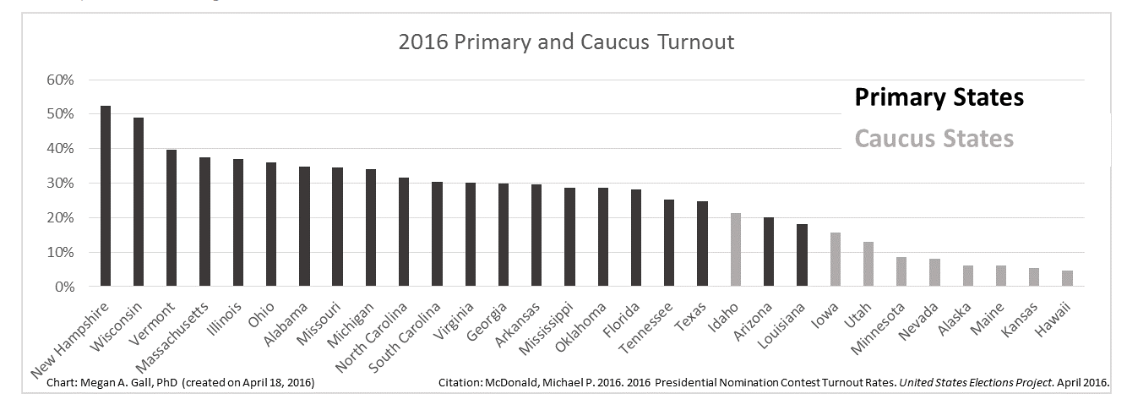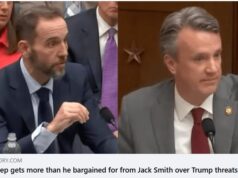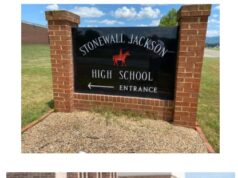By David Jonas
One of the best things about 2017 has been the dozens of candidates who have stepped up to run for office to beat back Trumpism in Virginia. I’ve tried my best to get involved with as many as of these campaigns as I can, and with a few races under my belt and a healthy obsession with Virginia public policy, it’s been a dream come true to play a small part in helping great candidates get elected.
But the number one question I’ve heard from the majority of these candidates hasn’t been about raising money, or how to get a handle on the nuances of policy, or anything like that.
The question I’ve heard most is, “What do I do if the local party calls for a convention?”
For those who don’t know, Virginia law gives broad powers to state parties to set the terms for how they choose their nominees. You can read how the Democratic Party of Virginia decides on these things here in Article 12 of this document. And for the most part, it’s a good system: when a special election for something like a school board seat pops up, there’s not always the time and resources to run a wide-scale primary. And it’s probably not a bad idea to decentralize some of the decision-making by giving local district committees—as the DPVA bylaws do—the ability to call the shots.
And it’s not hard to see why the method of nomination would be the number one strategic concern of any Democrat running to get the party’s nomination. The entire thrust of a campaign rests on the rules of the game. It’s all about whose vote you need to win. If it’s a convention, it’s about laser-targeting the party insiders who will make up the delegate pool. If it’s a caucus, it’s about targeting the most ardent Dems and making sure they can commit to an entire day of “voting”. If it’s a primary, it’s about reaching as many voters as possible and trying to form a winning coalition that will show up on primary day.
That’s why this past weekend I was thrilled to hear that the Virginia 10th Congressional District Democrats (who are trying to unseat Trump ally Barbara Comstock) voted to use a primary as their method of nomination. Yes, primaries have their disadvantages (as discussed below), but knowing the temptation local officials have in controlling as much of the nomination process as possible, this was a welcome affirmation that everyday Democrats should be the main focus of our candidates’ time and attention.
That was until I heard that the Virginia 5th Congressional District Democrats had chosen a convention as their nominating method.
And that they had done so 3 weeks ago.
During GOTV, when every Democrat in Virginia was focused on getting Ralph Northam elected and winning back the House of Delegates.
And without ever really announcing it to the public.
***
Let’s be clear: primaries should be the gold standard for how we as Democrats choose our nominees. They should be the rule rather than the exception. And thankfully, the races coming up for Congress in 2018 are tailor-made for primaries.
With genuine pickup opportunities like Virginia’s 1st, 2nd, 5th, 7th, and 10th districts, we have more than enough candidates (well, maybe not in the 2nd) raising considerable resources to make their cases to a very mobilized Democratic base. All of the reasons to hold a caucus or convention (too little participation, fears of concerted outside activity by Republicans, needing flexibility for setting deadlines/wanting to nominate earlier than June, not enough rural representation, etc.) don’t hold sway in 2018.
From the outset, it’s easy to see why some local officials would naturally angle for a caucus or a convention. The worst-case scenario is that the local party already has a favored candidate in mind, and they believe that candidate would do better in a convention or caucus where it’s mostly just activists participating. Or, more subtly, they want candidates to have to cater to their individual demands of government rather than less active Democrats. I would hope the vast majority of Democrats would reject these kinds of smoke-filled room shenanigans outright, as I imagine most local officials already do.
But even good-faith support for conventions and caucuses is misplaced for our races in 2018. Yes, primaries can be nasty and expensive, open primaries can allow non-Democrats to participate, and I understand why volunteers and activists who make up our local parities want to reward those who have put in their dues and worked hard in the past. There’s also the issue that rural areas and communities with fewer people get passed over in a primary. I get it.
But it’s also easy to see why conventions and caucuses are mostly a bad thing with major long-term disadvantages, especially when our candidates have plenty of time and money to compete for every vote:
- Primaries are great test runs for general elections. With primaries, campaigns have to develop real financing and field programs, which they’ll need to grow even more in the general. Doors get knocked, phone-banks get staffed, name recognition goes up, and the energy of the grassroots gets activated. It’s great. With conventions or caucuses, all of that energy gets thrown at people who are already 100% activated and committed to voting Democratic. Oh, and let’s not forget the lost opportunity to build much-needed connections among low-information voters. It’s a poor use of time and resources if you want Democrats to show up in November.
- Conventions dissuade young people from participating. And we need them more than ever. Even if you believe local officials and activists are better equipped to choose a candidate, these party insiders tend to be older and less representative of Democratic voters as a whole. We just saw Ralph Northam win by 39 points with voters under 30, and if we want more of that, we need to get young people involved early and often. It bears repeating: we cannot win Congress back in 2018 without young people. And if my Democratic friends under 30 are any indication, they’re not going to turn out for a caucus or convention with a bunch of barriers to participation. They will come and vote if it’s a primary.
- Open primaries may or may not be a good thing, but let’s change the law if we’re really worried about them. I support open primaries because I think they draw in more voters to the Democratic Party over the long-term than closed ones, but there are certainly valid concerns about Republicans switching over to vote in our elections to mess with us. But if local officials and activists are so worried about this, then the answer is to change the law, not build in more barriers to participation. Let’s not punish would-be voters (especially younger ones) who don’t eat-and-breathe politics (and who naturally assume there will be a primary) for the actions of Republicans.
- Virginia’s legacy of disenfranchisement and Jim Crow warrants extreme caution in using conventions or caucuses. Virginia in particular has a horrific history of exclusion and disenfranchisement when it comes to political participation. I’ve heard the argument that conventions can actually ensure greater minority representation, but I haven’t found much evidence to back that up claim. If anything, it just goes to show why we need a very public and open process in deciding nominating methods. I hope I’m not the only one who sees free and open primaries as learning from the sins of our collective past.
I know how hard our local parties work at this stuff and how many procedural hoops they have to jump through just to weigh these options. I have no doubt it’s more complicated than I’m describing it here. And yes, it’s extremely easy for folks like me who jump around all over Virginia in support of Democrats to criticize when I’m not there in the room.
But if the standard for me as a voter to have my say in who will lead my party is higher than a primary (especially if it’s a convention), you are effectively saying you don’t trust my judgment and are hedging your bets. You are asking me to jump through a set of very inconvenient hoops in the hopes that I’m the “right kind” of voter. You are filtering my voice rather conveniently through a mechanism of your choosing.
And call me crazy, but that’s not a recipe for better candidates, landing more votes in the general election, or bringing more people into the Democratic Party.
It sounds like Democrats in Virginia’s 1st and 7th districts are still deciding whether to do a primary or not. I hope they and every Virginia Democrat will stand up and demand primaries for our method of choosing our Congressional nominees in 2018. It’s how we’ll win this year, and it’s how we’ll keep the party growing well into the future.





![Video: Former Eastern District of VA Federal Prosecutor Gene Rossi Asks, “Is Donald Trump going to be the lead counsel in that prosecution [of Jim Comey] and do the opening, closing and rebuttal? I pray that he does!”](https://bluevirginia.us/wp-content/uploads/2025/09/rossiedva-238x178.jpg)







